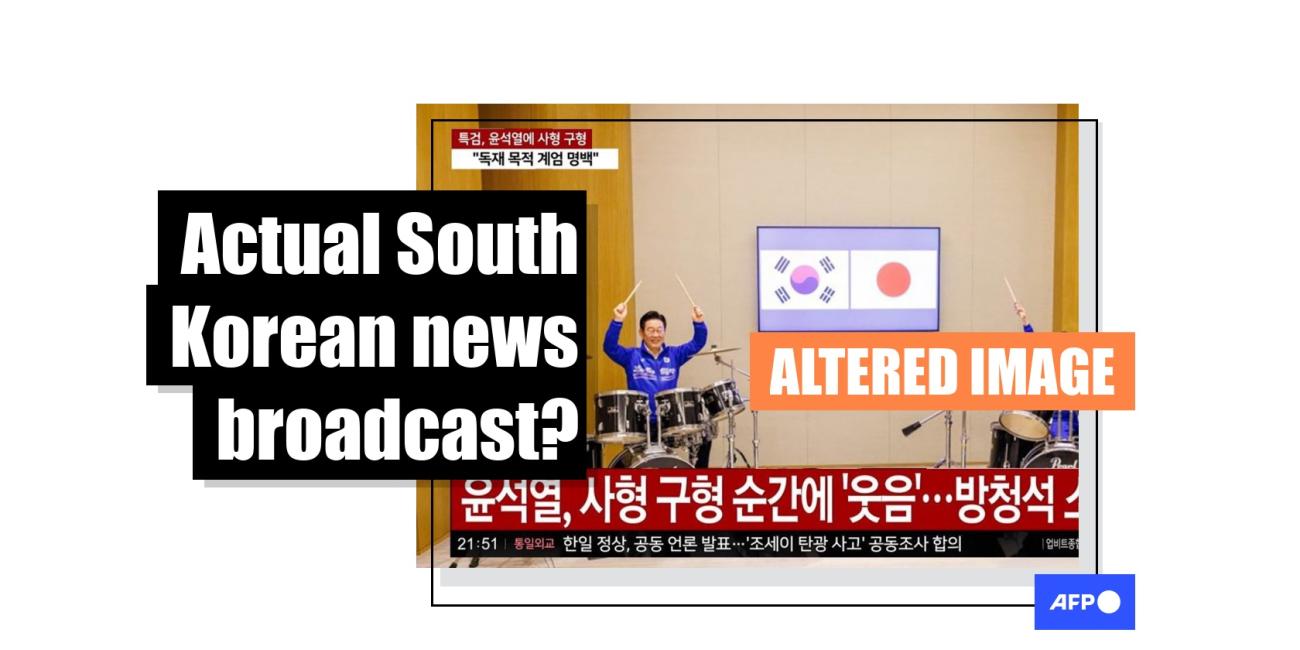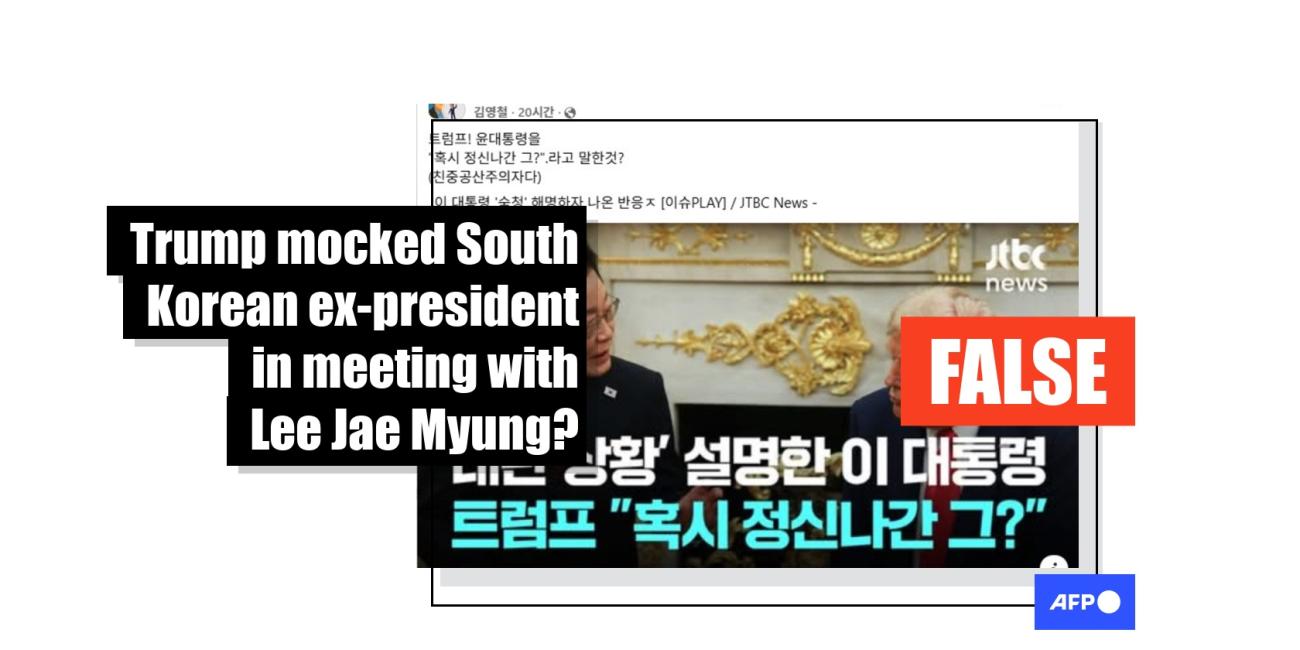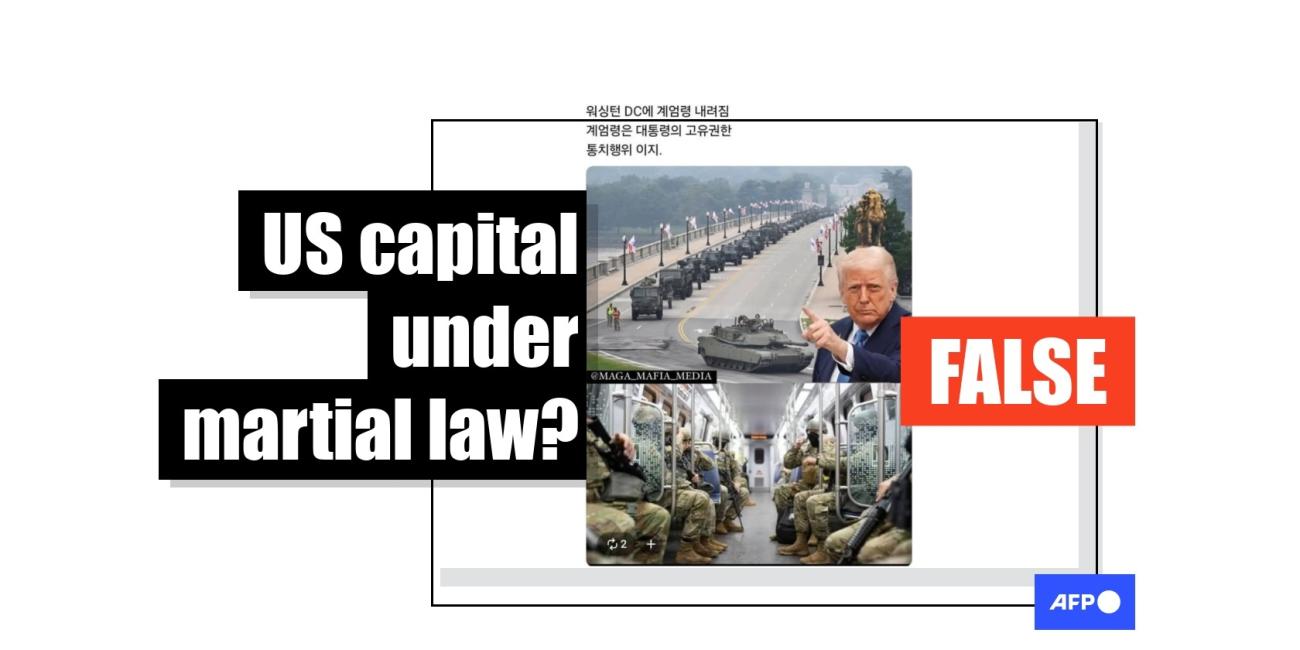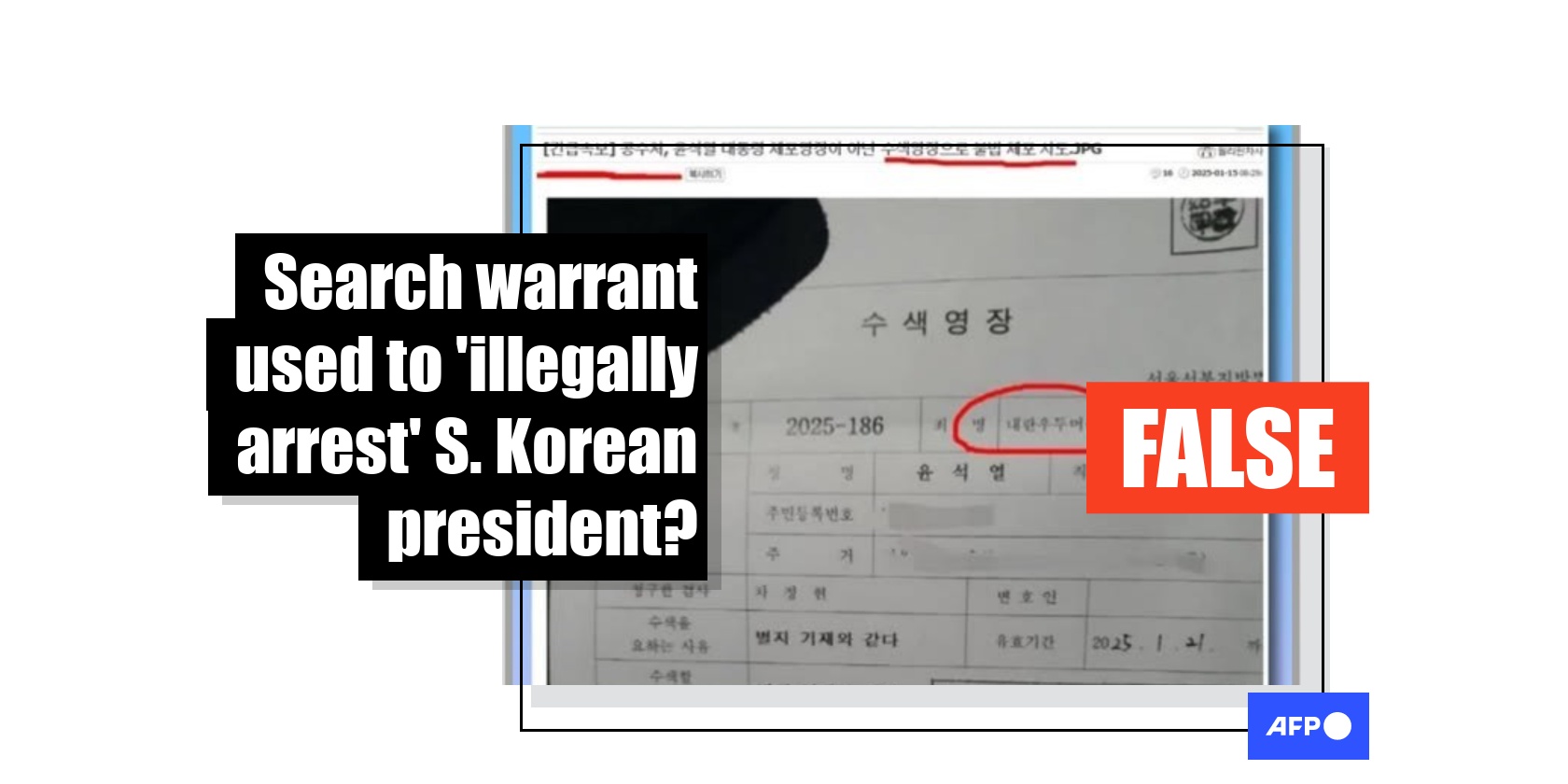
South Korean investigators did not use search warrant to 'illegally arrest' Yoon Suk Yeol
- This article is more than one year old.
- Published on January 17, 2025 at 10:10
- Updated on March 31, 2025 at 03:44
- 3 min read
- By SHIM Kyu-Seok, AFP South Korea
"[Urgent news] Corruption Investigation Office attempted to illegally arrest president based on a search warrant instead of an arrest warrant," a Korean-language Facebook post claimed on January 15.
It showed a photo of a search warrant targetting Yoon on the charge of leading an insurrection.
The image of the search warrant spread online was presented to the press by one of Yoon's lawyers, Seok Dong-hyun, shortly after his arrest attempt began (archived link).
Yoon became the country's first head of state to be arrested while in office on January 15 following his botched martial law attempt.
He had sought to evade arrest for weeks by remaining in his residential compound, protected by members of the Presidential Security Service (PSS) who had remained loyal to him (archived link).
But hundreds of police officers and CIO investigators, after scaling perimeter walls and hiking up back trails to reach the main building, announced he had been arrested at 10:33 am following an hours-long standoff.
The president could face the death penalty or life in jail if found guilty of insurrection, separate from an impending Constitutional Court case that will decide on his impeachment from office.
Korean-language text below the photo shared on Facebook reads: "Head of the insurrection?" and "Arrested based on a search warrant?"
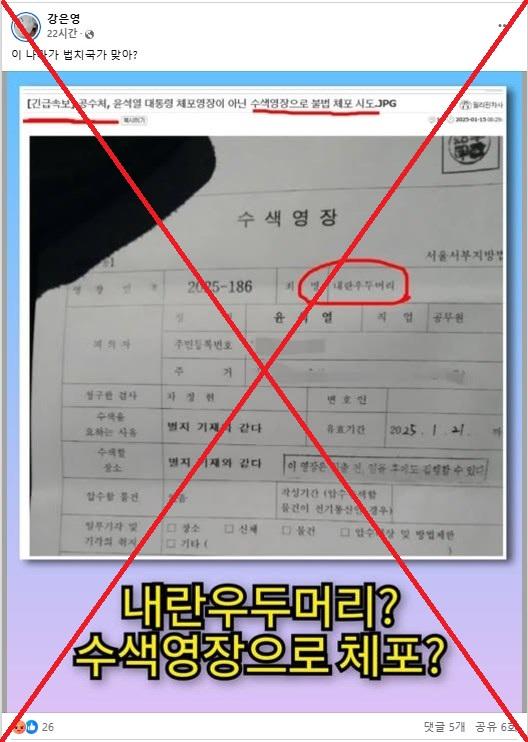
The image spread alongside similar claims on Facebook and the South Korean Ilbe forum.
South Korean law says a search warrant is a court order that authorises law enforcement to conduct a search of a certain person or specified place for criminal evidence, while an arrest warrant authorises the arrest and detention of an individual (archived links here and here).
The CIO reportedly issued the search warrant for Yoon's residence to verify his location in order to execute a separate warrant for his arrest (archived link).
Yoon's lawyers have argued that his detention by the CIO was unlawful because his arrest warrant was granted by the Seoul Western District Court -- which they say had no jurisdiction over the president.
But there have been no official reports saying the arrest was deemed illegal because investigators supposedly used a search warrant to arrest him (archived link).
Arrest warrant
A CIO official confirmed to AFP on January 15 that the arrest warrant used to take Yoon into custody was a separate document from the search warrant revealed by the president's lawyers.
The charge listed on the search warrant -- which labelled Yoon as "head of the insurrection" -- was the same as the one on the arrest warrant, the official said.
The president's lawyers, including Seok, have mentioned the existence of the arrest warrant in multiple public comments and statements (archived links here and here).
He said in a press conference after the president's arrest that the arrest warrant was unlawful (archived link).
Seok also posted on Facebook on January 16 that they would challenge the legality of the arrest warrant -- which he labelled as "nonsense" (archived link).
South Korean constitutional expert Professor Lim Ji-bong of Sokang University told AFP that the arrest warrant used to take Yoon into custody was legally issued by a court and that it was "impossible" for the president to be arrested solely based on a search warrant.
Yoon's lawyers' challenge to the legality of his arrest was struck down on January 16 by the Seoul Central District Court, which ruled the president's detention was legal (archived link).
The court found no problem with warrants issued by the western court used in the arrest, according to reports.
Updated to add metadataMarch 31, 2025 Updated to add metadata
Copyright © AFP 2017-2026. Any commercial use of this content requires a subscription. Click here to find out more.
Is there content that you would like AFP to fact-check? Get in touch.
Contact us
